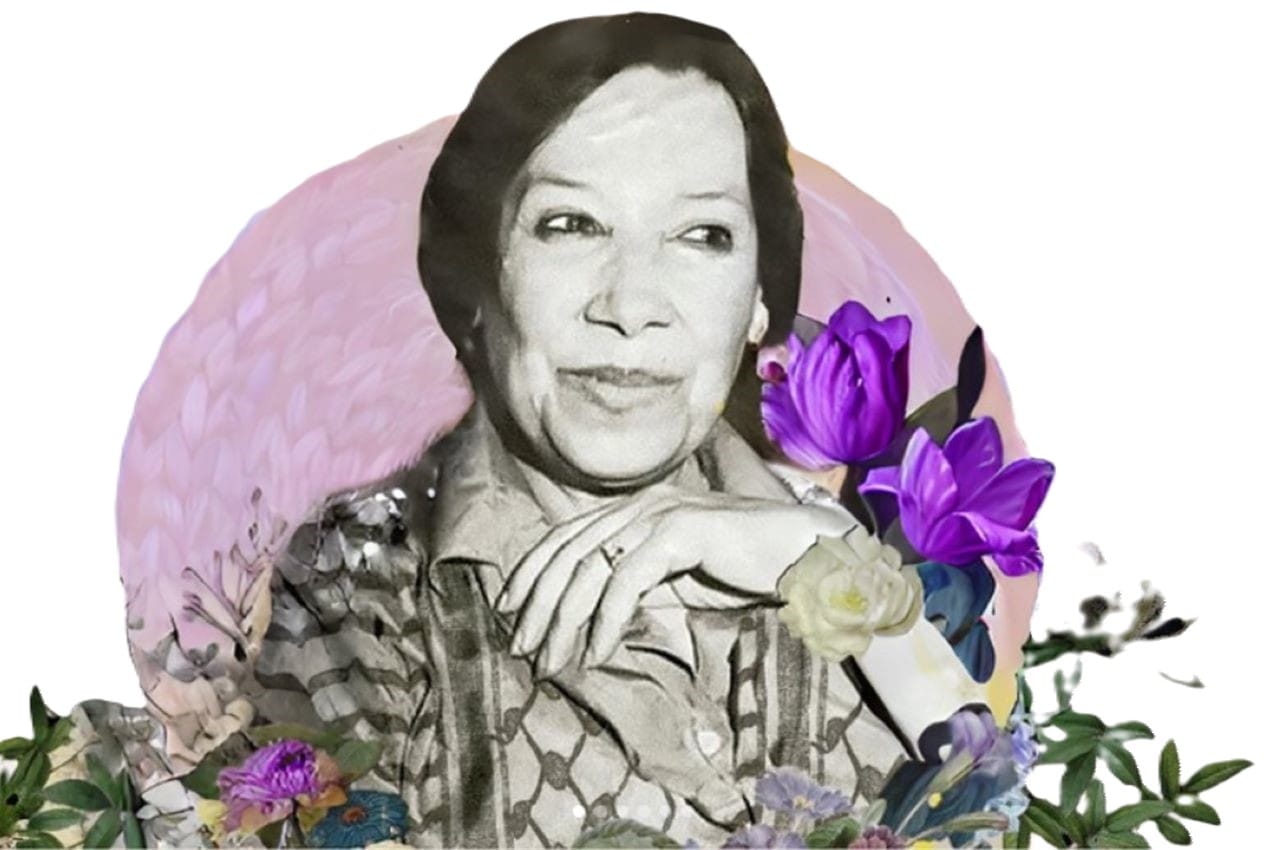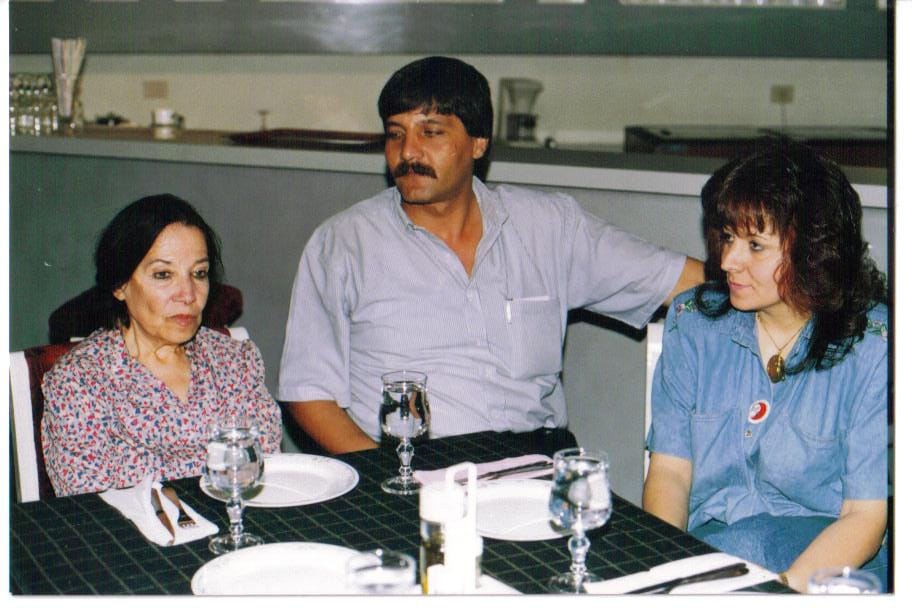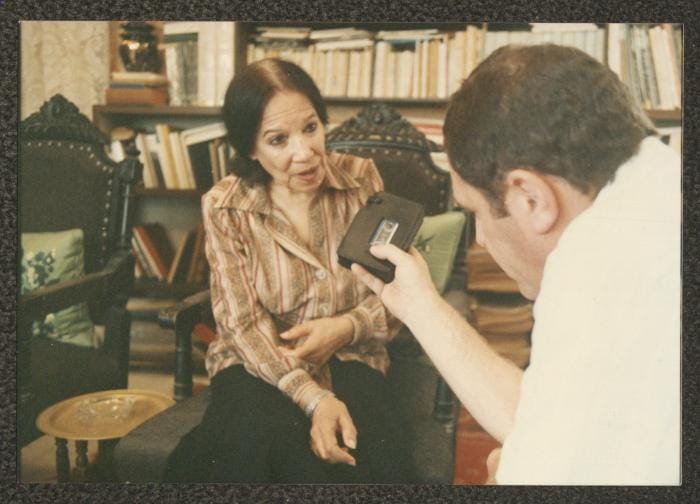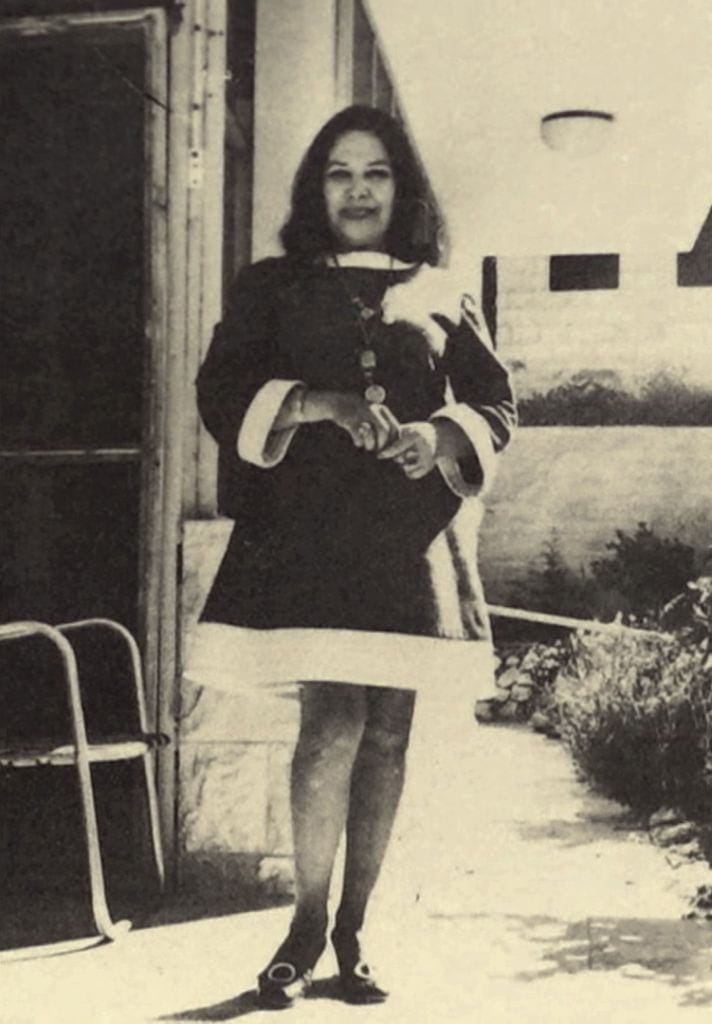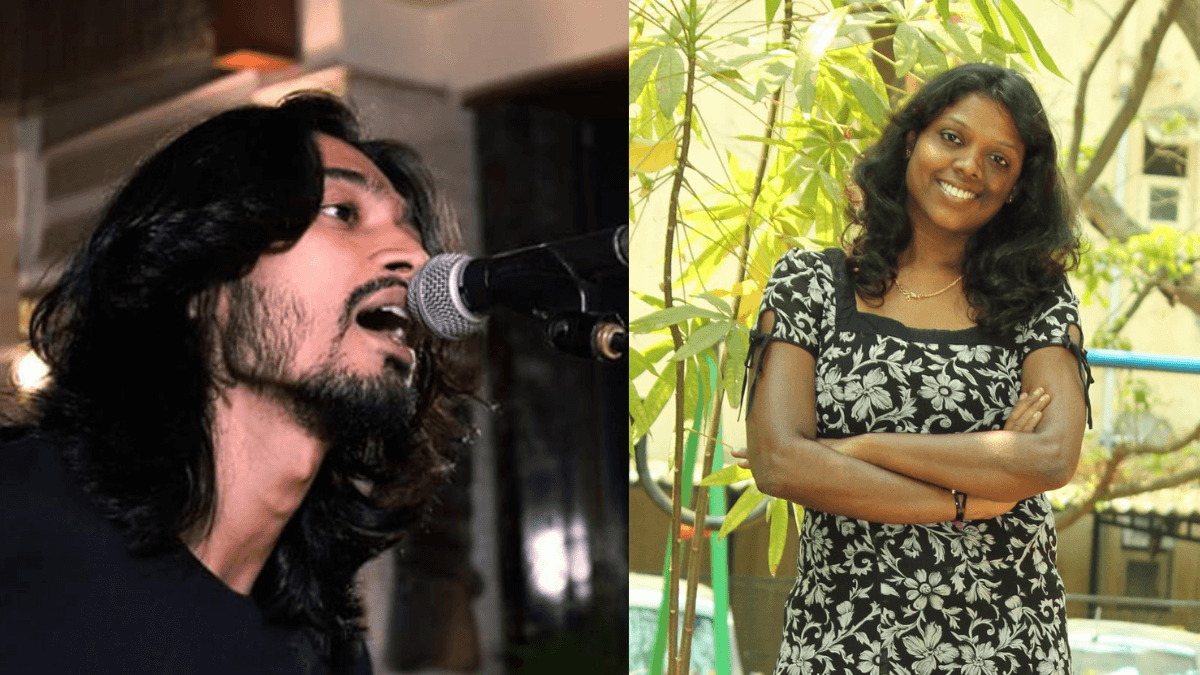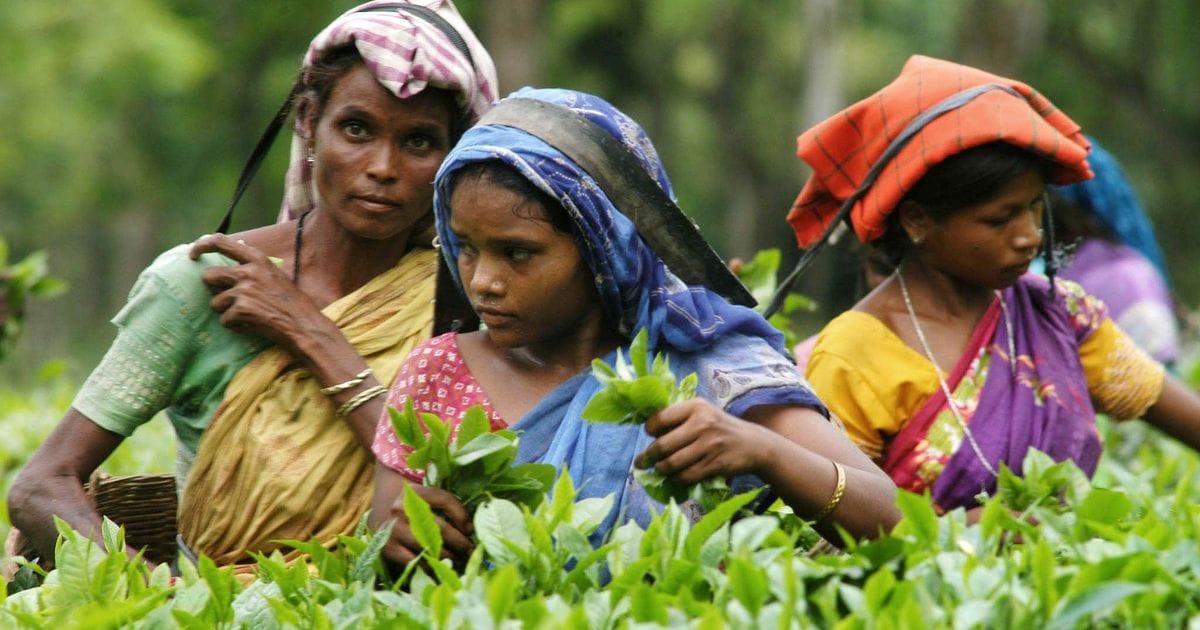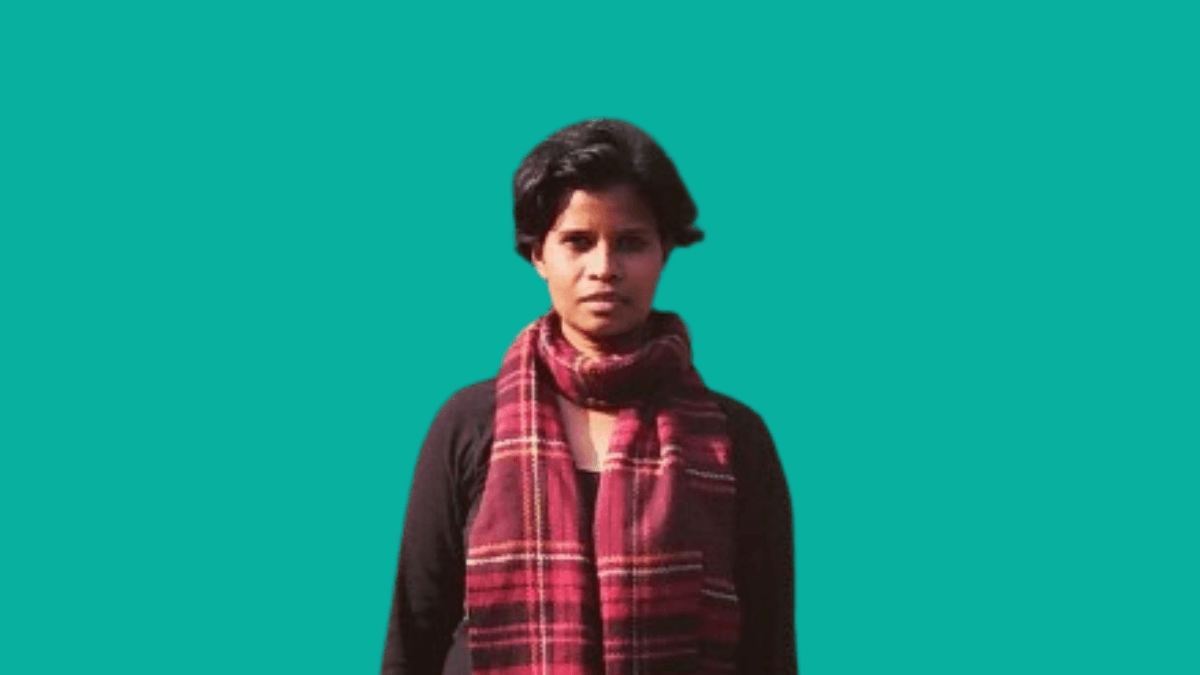The death, destruction and horrors in Palestine by the Israeli occupation has only escalated since the retaliation by Hamas on October 7th, 2023. It has been over 75 years since Israel has occupied Palestine. Over the years, there have been numerous voices that have been integral to Palestinians’ struggle for freedom and statehood and shaping the region’s cultural landscape. One such voice is Fadwa Tuqan— a prominent poet from the region who delved into themes of resistance and womanhood under the occupation.
Fadwa Tuqan has been referred to as the “Poetess of Palestine” and “the Electra of Arab Poetry”.
Fadwa Tuqan has been referred to as the “Poetess of Palestine” and “the Electra of Arab Poetry”. Mahmoud Darwish, one of the most prominent poets from Palestine, called her “The Mother of Palestinian Poetry.” It is said that Moshe Dayan, Chief of Staff of the IDF (1953-1958) had said that reading a poem by Tuqan was like facing twenty enemy commandos. Such was the power and influence that Tuqan’s verses had. Her poetry, fuelled with resilience and hope, not just confronted the harsh realities of life under occupation and loss of her homeland, but also her personal struggle and defiance against patriarchal forces.
Early life of Fadwa Tuqan
Fadwa Tuqan was born in Nablus, Palestine, in 1917. She grew up in a conservative and affluent family known for its literary tradition. Her eldest brother Ahmad Tuqan was the former prime minister of Jordan. As a young woman in a traditional household, Tuqan faced numerous restrictions on her education and personal freedom. At the age of 13, she was forced to quit her education by her family when a boy presented her with a flower to express his admiration. This experience of confinement would later seep into her early poetry. In her memoir, A Mountainous Journey, she boldly writes of her experience living in a patriarchal Arab household:
‘Women have to forget the existence of the word ‘no’ in Arabic, except when it comes to reciting the shahada, ‘there is no God but Allah,’ during Wudu’ and prayer. Meanwhile, ‘yes’ is the word she is taught to chant in a parrot-like manner since birth.‘
She further writes:
‘The concept of independence is completely absent from a woman’s life.‘
Her brother, Ibrahim Tuqan, who was already an established poet, recognised her yearning for education and home-schooled her, and introduced her to Arabic poetry.
Fadwa Tuqan’s poetic career
Fadwa Tuqan’s poetic career can be divided into distinct phases. Her early work was heavily influenced by Arabic forms of poetry and dealt with her own personal struggles and experiences. However, as she matured as a poet and witnessed the disastrous events shaping her homeland— The Nakba in 1948 and the six-day war of 1967, her focus shifted to more politically charged themes, giving us some of the most bold and revolutionary poems of resilience and rebellion.
It was during this time that she strayed away from the more traditional forms of poetry, common in Arabic poetry, and discovered the freedom offered by free verse. Most of her celebrated and prominent poems have been largely written in free verse. Tuqan had an unique ability to merge her own personal experiences of living in an orthodox patriarchal society and the multi-faceted experiences of womanhood with the collective struggles of her homeland.
Poetry, resistance and identity
The theme of resistance is central to Tuqan’s work, reflecting the Palestinian struggle against occupation. Her poetry often invokes the land and nature, using vivid imagery of hills and the sea to evoke a sense of belonging and loss.
Her poetry often invokes the land and nature, using vivid imagery of hills and the sea to evoke a sense of belonging and loss.
In “The Deluge and The Tree“, Tuqan uses the metaphor of a tree weathering a storm to represent the Palestinian people’s resilience in the face of occupation and displacement.
The poem’s powerful imagery of a storm contrasts the violence of the “deluge” (representing the forces of Israel) with the unmoving strength of the tree. She writes further:
Had the Tree really fallen?
Never! Not with our red streams flowing forever,
not while the wine of our thorn limbs
fed the thirsty roots,
Arab roots alive
tunneling deep, deep, into the land!
She encapsulates the defiant stance of her people in her verses. However strong the forces of the oppressor are, the land of Palestine will stand tall just like the tree does. The “red streams” is a metaphor for the blood of all those who were martyred for the sake of Palestine’s freedom. She ends the poem with a note of hope:
When the Tree rises up, the branches
shall flourish green and fresh in the sun
the laughter of the Tree shall leaf
beneath the sun
and birds shall return
Undoubtedly, the birds shall return.
The birds shall return.
This particular poem was written during the aftermath of the 1967 war. The hope and resilience that Tuqan has imbued in the poem is ubiquitous in most of her poems. The poem ends on a note of hope and determination, with the tree not just surviving but flourishing.
In “I Shall Not Cry”, Tuqan rejects the traditional role of women as passive mourners in the face of the occupation.
How shameful had I come to meet you
with eyes wet, blinking
and with a despairing, defeated heart!
And here I am, my loved ones, among you
to borrow an ember from you
to take, oh lanterns in the dark,
a drop of your oil
for my own lantern.
She further writes:
How could despair crush me?
How could I cry in front of you?
Upon my word, I shall not weep hereafter.
She flips the idea of usual notions of femininity on its head. Tuqan is not just a spectator but rather, a force of retaliation who shall take the torch forward from those who came before her. She stands on the shoulders of all those giants who came before her and paved the way forward. She will not cry but rather, fight. And she did fight with her words and her poetry.
Feminist perspectives In Tuqan’s poetry
Equally significant in Tuqan’s poetry is her exploration of women’s experiences. As one of the first and finest female voices in Palestinian literature, Tuqan broke new ground in addressing issues of patriarchy. Her early poems often reflect the stifling nature of traditional gender roles. As her career progressed, Tuqan’s feminist voice grew stronger and more explicit.
In “Labor Pains” she writes:
Tell the usurper of our land
that childbirth is a force unknown to him,
the pain of a mother’s body,
that the scarred land
inaugurates life
at the moment of dawn
when the rose of blood
blooms on the wound.
Tuqan celebrates the act of childbirth and womanhood even as the “usurpers” of her land rage a genocidal war on her homeland, trying to eradicate her people.
“Hamza” is yet another famous poem where she merges elements of national identity with the complexities of womanhood. Midway through the poem, Hamza, her cousin, reassures her:
‘My sister, our land has a throbbing heart,
it doesn’t cease to beat, and it endures
the unendurable. It keeps the secrets
of hills and wombs. This land sprouting
with spikes and palms is also the land
that gives birth to a freedom-fighter.
This land, my sister, is a woman.’
From Tuqan’s perspective, the oppression that her homeland is facing is akin to the challenges that a woman has to face in society. And like a woman, her nation endures without yielding. She celebrates the resilience of her people and also, of her sisters. ‘This land, my sister, is a woman‘ is a powerful ode to both, her homeland and the women of her nation.
The enduring legacy of Fadwa Tuqan
Fadwa Tuqan passed away in 2003, but she left behind a legacy that continues to resonate deeply with Palestinians and supporters of their cause worldwide. The themes she explored— resistance, identity, loss, and hope— remain painfully relevant in the face of ongoing conflicts and struggles in the region.
The themes she explored— resistance, identity, loss, and hope— remain painfully relevant in the face of ongoing conflicts and struggles in the region.
Fadwa Tuqan’s poetry stands as a testament to the power of literature and poetry to document personal and collective experiences. As the onslaught of genocidal oppression by Israel continues to rage on, Tuqan’s words remain as relevant and inspiring as ever. Her legacy lies not only in her evocative poetry but also in her role as a pioneer who broke barriers for women in literature and public life.
She dared to make a name for herself in a space that was hugely dominated by men. Her journey from a confined young woman to a celebrated poet mirrors the broader story of Palestinian resilience and the ongoing struggle for self-determination.
